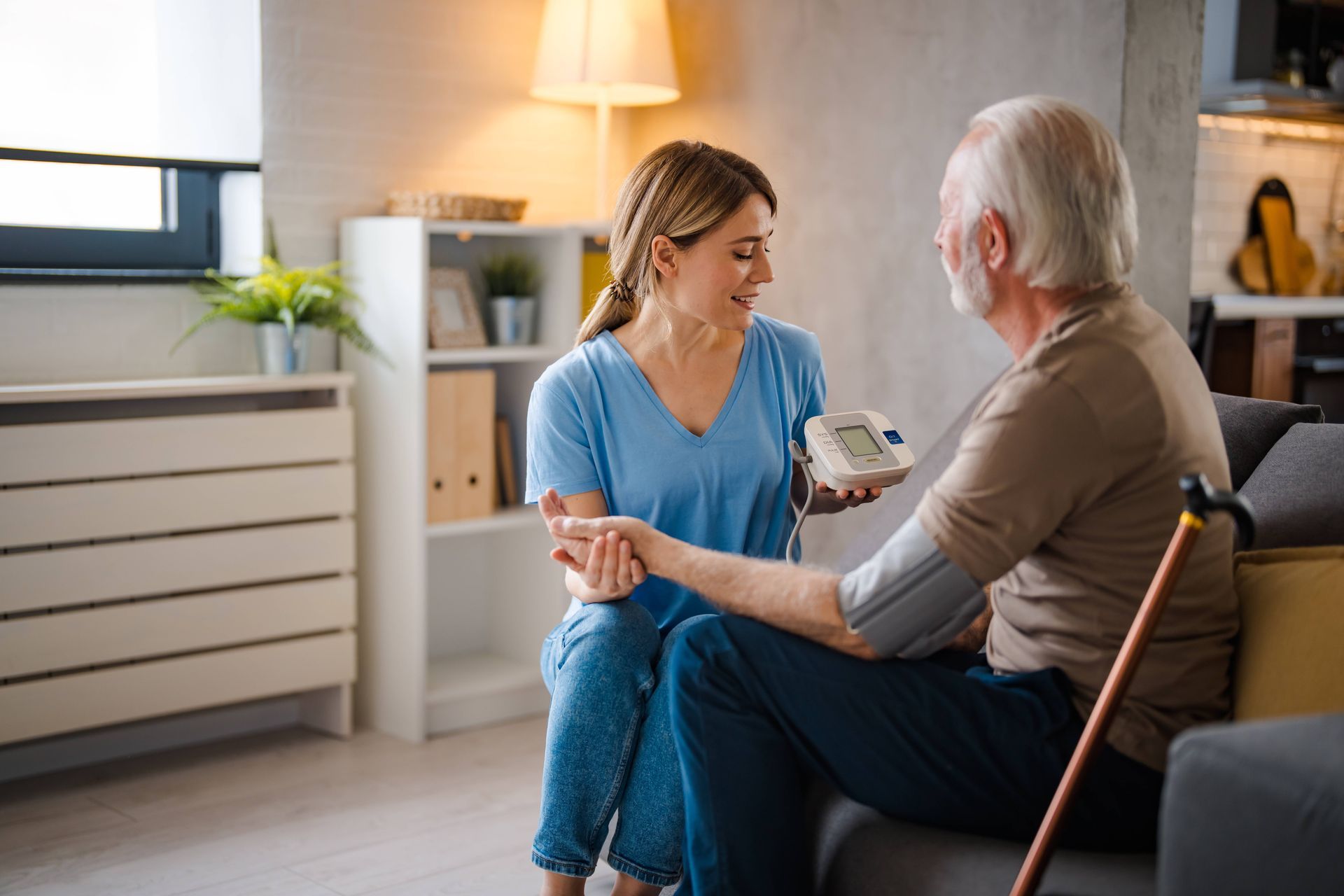Personal In-Home Care vs. Medical In-Home Care
Everyone enjoys the comfort of their own home. Homes are customized to a person’s aesthetic and style and filled with memories and emotions the individual has gathered over time. These elements can bring a person enormous comfort and feelings of safety, especially to people who are aging.

However, what if your family member, friend, or other close companion is starting to struggle with living on their own? Thoughts of putting the person you love into an assisted care facility start to flood your mind. But still, you don’t want to disrupt their lives or put the person into an unfamiliar or uncomfortable environment. It’s a difficult decision. Fortunately, there are two options worth exploring before an assisted care facility: Personal In-Home Care and Medical In-Home Care. Both services allow people to give an aging companion the independence they still desire.
What’s The Difference Between Personal and Medical In-Home Care?
Personal In-Home Care focuses on assisting individuals with their daily living activities and providing companionship. This non-medical support helps maintain quality of life and independence while ensuring safety and comfort at home. Personal In-Home care services include assistance with bathing, dressing, grooming, meal preparation, light housekeeping, transportation to appointments, and more. A survey by the National Association for Home Care & Hospice revealed that over 90% of patients were satisfied with their home health care, praising the comfort of receiving care in their homes and the tailored nature of the Personal In-Home care services.
Medical In-Home Care involves skilled nursing and medical services provided by licensed healthcare professionals. This type of care is prescribed by a physician and focuses on treating medical conditions or supporting recovery. Medical In-Home Care services include wound care, dressing changes, medication administration and management, vital signs monitoring, physical therapy, occupational therapy, speech therapy, disease management, post-surgical care, IV therapy, and injections.
When choosing between these services, consider personal in-home care when assistance with daily activities is needed, companionship is a primary concern, memory care support is required, or safety monitoring is necessary. On the other hand, medical in-home care is appropriate when recovering from surgery or illness, managing chronic medical conditions, requiring skilled nursing services, or needing specialized therapy.
What About Both?
Many aging people can also benefit from combining both Personal In-Home Care and Medical In-Home Care Services. This approach ensures that both daily living needs and medical requirements are managed properly. The collaboration between personal caregivers and medical professionals can provide a robust support team that enhances overall well-being and recovery outcomes and gives you peace of mind.
Lean On Family Choice Home Care to Help Care for Your Loved One
Whether choosing personal in-home care, in-home medical care, or a combination of both, our goal remains the same: providing quality care that supports independence, dignity, and optimal health outcomes in the comfort of a person’s home. Trust us to enhance the life of your loved one seven days a week, 24 hours a day. We proudly serve Lexington, Richmond, Berea, Danville, Georgetown, Lancaster, Nicholasville, Mount Sterling, and Winchester in Kentucky. Contact us to find the right options for you and your loved ones.
